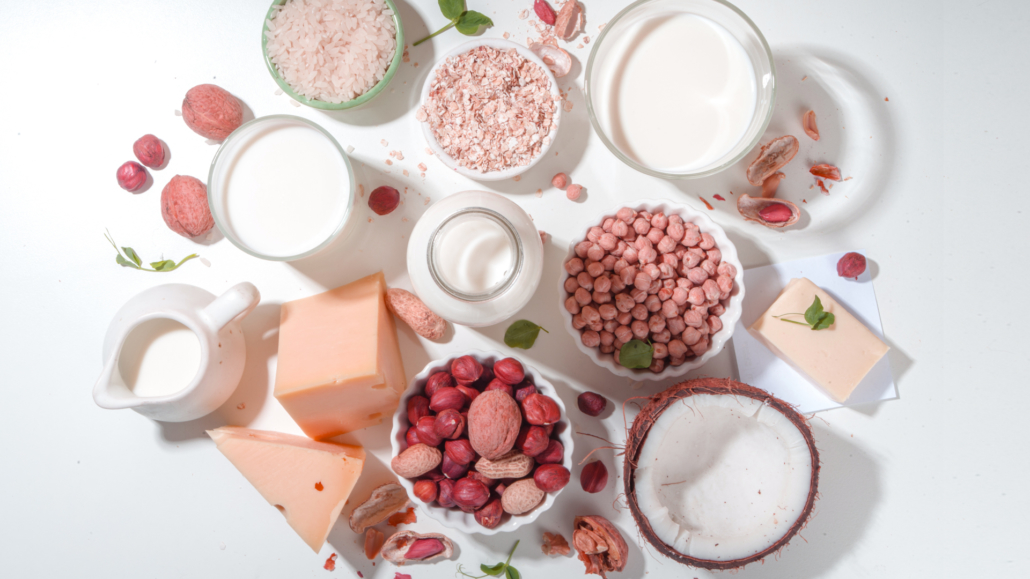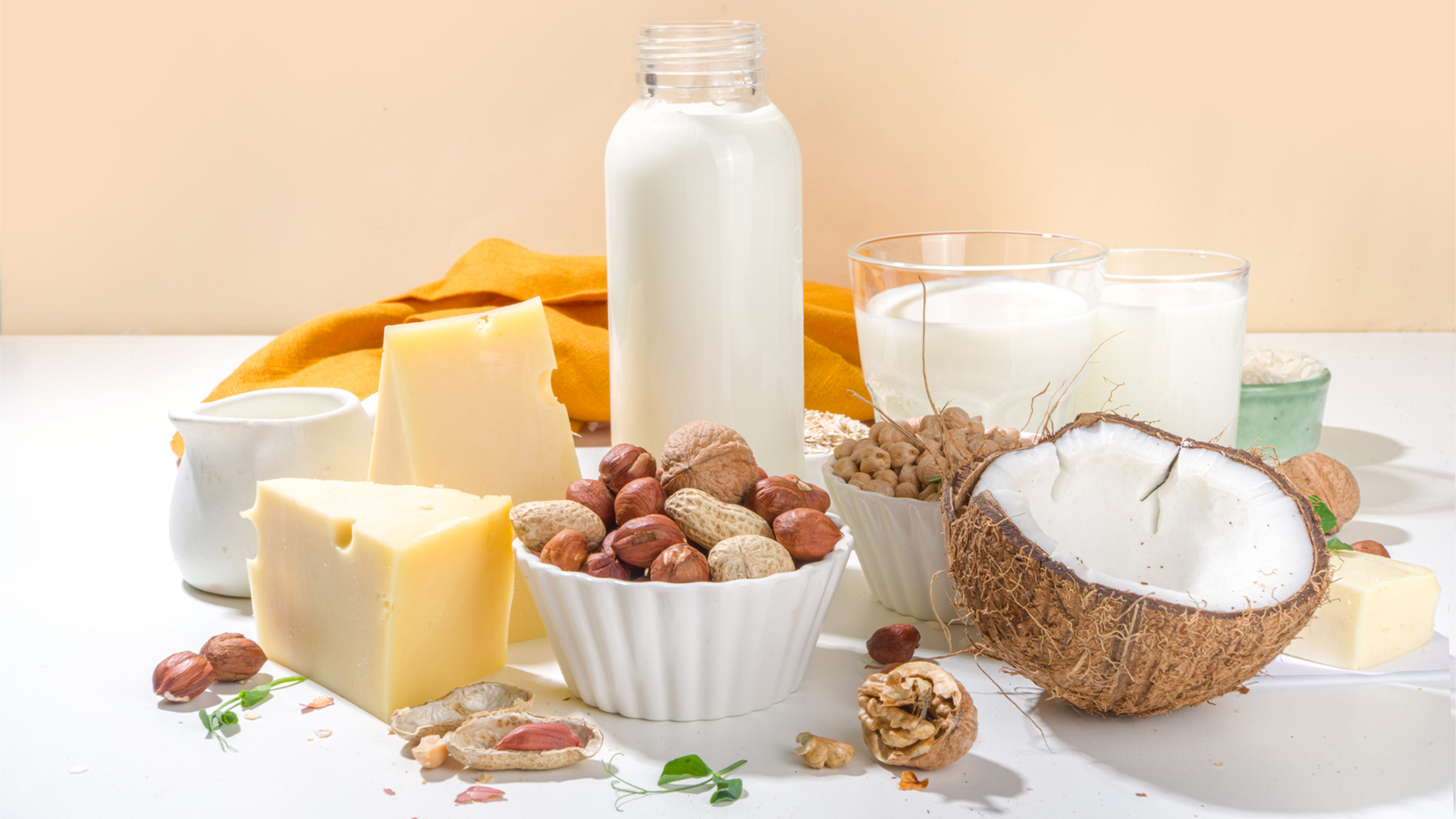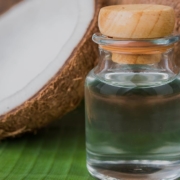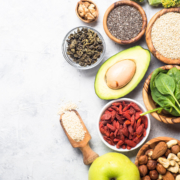The Top 7 Most Controversial Foods for Health
Is gluten bad? Is salt a hard no? Is veganism the best? Are fermented foods good for you? There is no right or wrong, good or bad, best or worst. When it comes to your diet, it’s all about balance, quality, and compatibility.
Whole Grains
Whole grains have been part of our diet for thousands of years. Whole grains like barley, rye, brown rice, buckwheat, bulgur, and whole-grain products like bread and pasta are high in fiber, B vitamins, potassium, magnesium, selenium, and iron. They are also a source of complex carbohydrates, which we need for energy. Whole grains have also been linked to lowering the risk of heart disease, type 2 diabetes, stroke, and obesity.
So why have they gotten such a bad rap? The simple answer is that whole grains aren’t compatible with everyone. For some, the fiber in them is great for digestion, but for those with inflammatory gut issues, processing grains and gluten is problematic. Fortunately, whole grains aren’t the only source of the above-mentioned nutrients.
Aside from the most common reason people avoid whole grains products, gluten sensitivity or intolerance, whole grains might also not be the most appropriate food for individuals with an autoimmune disorder or Lyme disease. In the case of Lyme disease, whole grain products that contain gluten can further weaken the immune system, cause inflammation, and fuel yeast overgrowth. Gluten also can spur abnormal immune responses for those suffering from an autoimmune disorder.
That’s why both the Lyme diet and Autoimmune Protocol diet recommend avoiding gluten. Both of these diets—which really can be used as guidance for anyone—advocate eliminating what the body doesn’t need and making those determinations through a process of elimination and reintroduction.
Meat
Eating meat is bad for your health and the planet, says the vegan. You can’t get enough protein, vitamin B12, iron, calcium, and essential fatty acids from eating a plant-based diet, says the meat eater. To eat meat or not might be the most polarizing food topic, and one where both sides have some heavy claims and valid evidence.
Meat lovers and vegans might never see eye to eye, andthe decision to include animal protein in your diet or not requires a certain level of self-education, conscious shopping, and body attunement. For example, not all livestock is raised equally (hormone free, antibiotic free, grass-fed, free range, humanely treated, etc.) And, not all types of meat support heart health and healthy cholesterol levels, such as red meats (beef, lamb, pork, goat, venison), which have more saturated and trans-fat than lean protein like chicken.
Eating meat for your health means eating the right type of meat for your body and in moderation. For someone trying to heal from adrenal fatigue, animal protein can be beneficial whereas for someone with heart disease or high cholesterol, animal protein might be advised against. Chronic conditions aside, it is also important to pay attention to how eating meat or not eating meat makes you feel.
The decision to adhere to a vegan diet is not as simple of just eliminating food sourced from animals. It is very easy to be an unhealthy vegan if you are not conscious of where you are getting essential nutrients like protein, calcium, iron, essential fatty acids, zinc, iodine, and vitamin B12 from. However, there is a lot of scientific evidence in favor of an entirely or predominantly plant-based diet. For starters, plants are high in fiber (which your gut microbiome needs to thrive) and phytochemicals and antioxidants (which work to neutralize toxins from pollution, processed food, bacteria, and viruses). For some, a vegan diet can reduce your risk of cancer, heart disease, and obesity and can be particularly beneficial for those suffering from chronic inflammation (the root of most diseases).
Fruit
You would be hard-pressed to find someone who would refute your claim that fruit is good for you. An apple a day keeps the doctor away, right? Fruits provide a diversity of antioxidants and are high in fiber and essential vitamins and minerals. Too much fruit, though, can cause heartburn, diarrhea, reflux, and bloating. High blood sugar is another possible side effect of eating too much fruit, which could pose an additional problem for individuals with diabetes. But eating the right amount and diversity of fruit daily is an important component of a balanced and healthy diet unless, for example, you have a fungal infection.
Candida is the most common fungus in the human body. It is generally benign unless there is an overgrowth, which can be caused by things like diet, antibiotics, too much alcohol, and stress. A diet high in sugar (even natural sugars from fruit) can create an environment that supports a candida overgrowth, which can manifest as a UTI, yeast infection, GI issues, and even joint pain. Low-sugar fruits like lemon, limes, and berries can still be consumed in small amounts, but generally, most fruits should be avoided until the infection is eliminated.
This is a classic example of how a certain type of food might be temporarily incompatible with you, depending on what is going on in your body.
Fermented Food
Gut microbiome health has become a major focus in wellness as more and more research corroborates the utter importance of the gut microbiome and its crucial role in both our physical and mental health. Prebiotics, probiotics, kombucha, kimchi, and kefir are household items now for many looking to support their gut microbiota naturally. As gut health awareness has risen, so has the popularity of fermented foods. In fact, it has become widely accepted that incorporating fermented food, even just yogurt, into your diet is necessary to maintain gut health.
Fermented foods contain live microorganisms that can increase microbial diversity, support immune function, reduce inflammation, and improve cognitive functions, among other benefits of their antimicrobial, antifungal, antioxidant, and anti-inflammatory properties. If you can tolerate fermented foods, then the benefits can be great.
However, some people are intolerant to fermented foods, which is mainly due to the histamines that are released by some of the common microorganisms. Histamine intolerance can manifest as a skin irritation, hives, heartburn, reflux, migraines, increased heart rate, or nasal congestion—basically like an allergic reaction. If fermented food makes you feel nauseous, bloated, dizzy, or just all-around blah, it might not be a suitable type of food for your health.
Salt
Salt is bad for you.
Well, not quite.
Salt is actually essential for life, but too much or too little can diminish your health. But how much salt do we really need? Well, the human body only requires about 500 milligrams of salt (a little over ¼ teaspoon) daily to conduct nerve impulses, contract and relax muscles, and maintain the proper balance of water and minerals. The average U.S. diet includes about 3,500 milligrams of salt, mainly from processed and packaged food like salami and instant noodles.
Consuming too much salt, which is easy to do without even personally adding any additional salt to what you are eating, causes water to be drawn into your bloodstream, resulting in higher blood volume. This increased volume can trigger hypertension, which can increase the risk of stroke, heart attack, and kidney disease. Individuals with high blood pressure would benefit from a low-sodium diet.
On the other side of the spectrum, someone with low blood pressure would benefit from adding salt to their diet. As with the other controversial foods, the right amount, within a recommended spectrum of between 500 and 1,500 milligrams, depends on what’s going on in your body. Keep in mind that sodium works in tandem with all of the other minerals in your body and as always, balance is key.
Fortunately, there are noticeable symptoms of too much or too little salt, if you just tune in to them. Too much salt in your diet can cause frequent urination, persistent thirst, swelling, bloating, and, strangely, a serious salt craving. Too little salt in your diet can cause muscle spasms, cramps, dizziness, headaches, fatigue, and heart palpitations.
Oils
Some diet trends, such as the whole foods plant-based diet, recommend eliminating oil from your diet, including those that are thought to be healthy. The argument is oils are processed and high in fat. The counterargument is that plant oils are processed from whole foods such as olives and avocados, and that certain oils contain healthy fats that we need. So, what is the winning argument? Both.
You might try eliminating oil from your diet if you are working towards a healthy weight goal or you might add a healthy oil like extra virgin olive oil to your diet if you are trying to reduce inflammation.
Fat is a fundamental part of a healthy diet, though, whether you get it from healthy oils or not. Too much fat, especially saturated and trans-fat, can raise LDL cholesterol and decrease HDL cholesterol, increasing your risk of heart disease. Monosaturated fat is typically considered the “good” or “healthy” fat in moderate amounts. Olive, peanut, and avocado oil all fall into this “healthy” category. But what about coconut oil?
Coconut oil is likely the most controversial oil for health. Coconut oil is high in saturated fat and meets over 60% of the daily recommended fat intake in just one tablespoon. When consumed in moderation and in its purest form, coconut oil can offer some surprising benefits, including improving LDL and HDL levels, hormone balancing, anti-aging qualities, and antibacterial, antimicrobial, and antifungal properties. Skinny & Co. explains that pure, high-quality coconut oil has a high fatty acids content, including lauric acid, which when digested, “forms specific enzymes in the digestive tract that inhibits the growth of pathogens and has antibacterial and antimicrobial capabilities.”
Like salt, one of the main problems is that the modern Western diet simply has too much oil in it, mainly from processed and fast foods. The decision to eliminate oil or enjoy it in moderation depends on your current health state and wellness goals—there is no one winning argument.

Dairy
As children, many of us were brought up on cow’s milk. We were told that drinking milk would help us grow big and strong. Household staples like cheese and yogurt were also packaged as great sources of calcium. Unless you grew up vegan or were diagnosed early on as lactose-intolerant, dairy wasn’t really considered a controversial food. That is not the case today. Dairy is controversial for a number of reasons, from animal rights to negative health implications.
Surprisingly, 65% of the world’s population cannot break down lactose (a sugar found in milk), but our love for cheese and milk products is often stronger than our digestive issues. The good news is that there are so many dairy alternatives now.
With so many alternatives such as plant-based “milk” products that are enriched with vitamin D and calcium, consuming pasteurized cow’s milk (whether by the glass, as cheese, in yogurt, etc.) isn’t the only way to “grow big and strong” anymore. And if the substitutions are not for you, keep in mind that raw cow’s milk, and goat and sheep milk options are often easier to digest for a lot of people and are packed with nutrition. Naturally, with so many different options come all different opinions about what is best for your health.
The most important thing is to make sure your diet, whether it includes dairy or not, provides you with enough protein, calcium, and vitamin D to keep your heart, muscles, and bones healthy and functioning—and to listen to your body and how it feels when you consume certain foods like cheese, raw milk, or coconut milk yogurt.
While the debate between milk and plant-based milk goes on, another point of contention is pasteurized versus raw milk. Pasteurizing milk has been the standard because it kills harmful bacteria like E. coli and salmonella. Raw milk, on the other hand, is an utter straight-to-bottle operation. The consumer is putting their trust in the farmer’s skill to keep the milk uncontaminated. The main argument supporting choosing raw over pasteurized is the belief that raw is the way nature intended milk to be, full of nutrients and good bacteria, not sterile. The main issue against it, however, is safety.
Personalize Your Plate
There are no shortages of options and conflicting information out there about what makes up the optimal diet. Do this, don’t do that, eliminate this, eat more of that…there is no universal right or wrong, only what’s compatible and beneficial, or not, for your body. The takeaway should be that only you can decide what should be on your plate. Making that decision comes from listening to your body, forming your own opinions based on the information you obtain, and modifying your diet as your health needs and goals change.
Disclaimer: The statements made in this article have not been evaluated by the Food and Drug Administration. Any products or treatments mentioned are not intended to diagnose, treat, cure, or prevent any disease. Please consult a licensed medical practitioner for medical advice.
At Innovative Medicine, we believe in transparency. We want you to know that we may participate in affiliate advertising programs pertaining to products mentioned herein.
See how we can help you restore complete health of body, mind & spirit.
Join our mailing list and receive exclusive offers + information!







Leave a Reply
Want to join the discussion?Feel free to contribute!